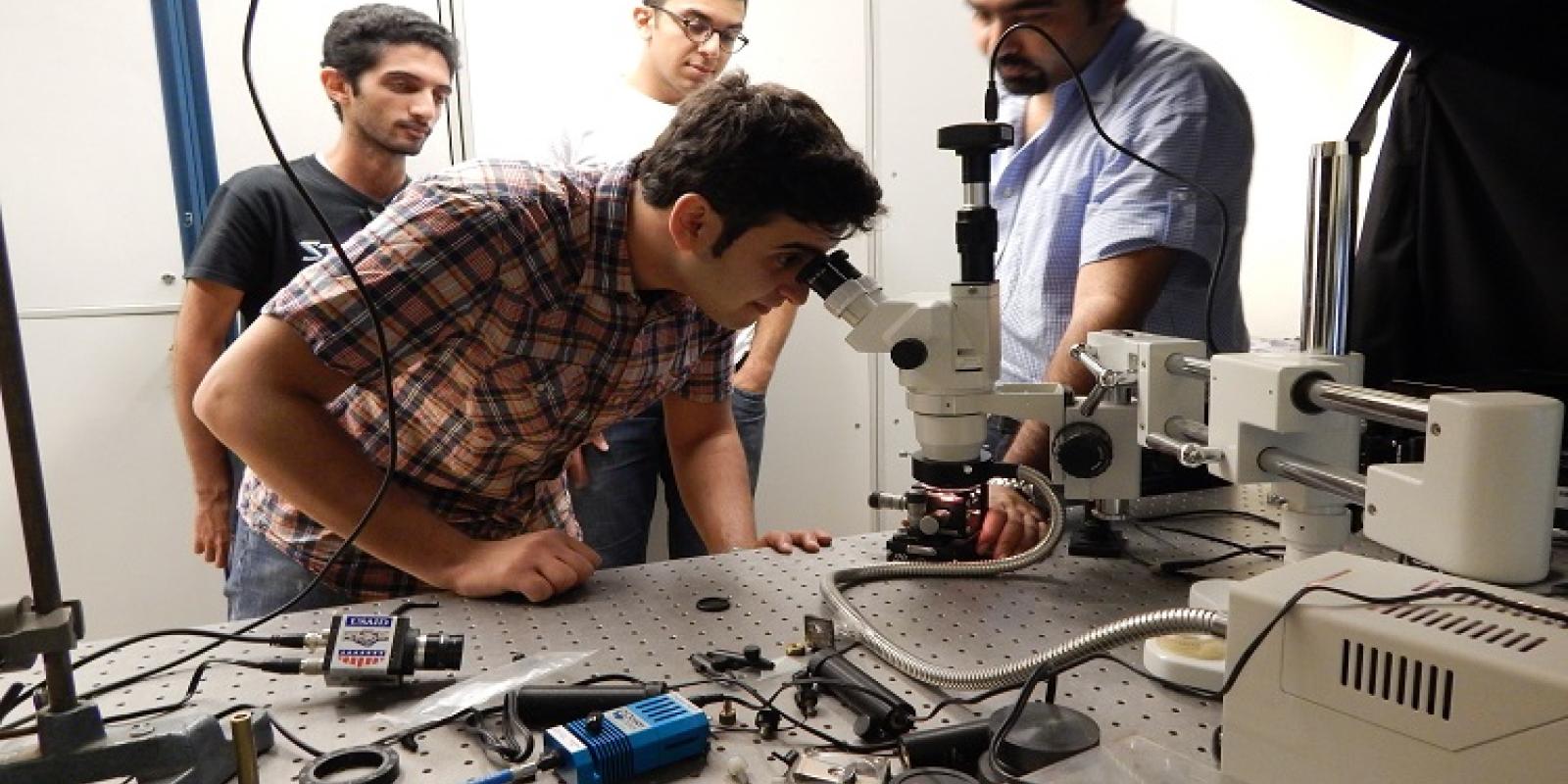
Undergrads Develop Nanoscale Device Used for Selective Drug Delivery
Two undergraduate students, led by Mohamed Swillam, assistant professor of physics and associate chair of the Department of Physics, have recently received international recognition for their work in the nano-optics field, developing novel optical tweezers that can be used to trap and control nanoparticles, useful in selective drug delivery.
The research team consists of Swillam, Mahmoud El Maklizi '14, a biology major who minored in physics, and Mostafa Hendawy '14, an electronics and communications engineering major who also minored in physics. Their work was published in EuroPhysics News, which highlights high-impact research in physics.
“I am so honored that this research has been conducted by our AUC undergraduates,” said Swillam, who received the 2014 state award in the Advanced Technology field for his work in nanoscale device fabrication and optical research, commonly known as nanophotonics.
The super microscope, or nanoscope, has an “easy and simple” design, as Swillam described it, and can be integrated with optical fiber for in vivo drug delivery inside the human body. The result is a super lens, or a normal lens with high capabilities, that not only decreases the chance of damaging tissues that are normally difficult to see, but can also be used as optical tweezers to trap and manipulate biological molecules. “The trapped molecules can be moved to the targeted destinations inside the body, which can have a great impact in selective drug delivery, making the drug have a stronger effect and be more concentrated on the infected areas. It also reduces the side effects of the drug on the healthy tissues and decreases the frequency of the dosages taken by patients,” explained Swillam, adding that the optical tweezers can also be used in nanoprinting and nanolithography, to make nano-electronic circuits.
Highlighting the importance of undergraduate students being at the forefront of their fields, Swillam noted, “It is very crucial for undergraduates to explore their own ability to create and innovate. This won’t be possible unless they get involved in research activities and try to make use of their skills and talent. Some of them show even more passion and motivation than graduate students. With their creativity, they always add to the group and to me. They are the ones driving the work. I am very proud of them.”
